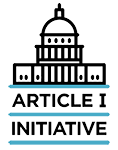It has long been understood that broad congressional delegations of rulemaking authority have empowered administrative agencies to play a robust role in setting policy priorities for many subjects, including the environment. This phenomenon is even more evident when realizing that most of the major environmental laws were passed several decades ago and have seen little updating since. Has Congress purposefully, or because of its inattention to passing or amending environmental laws, been ceding its policy-setting authority to others? This panel will consider that question by looking at the role of not just administrative agencies handling environmental issues but also other non-congressional mechanisms for controlling the environmental law and policy agenda.
- Prof. Jonathan H. Adler, Johan Verheij Memorial Professor of Law, Case Western Reserve University School of Law
- Prof. Donald J. Kochan, Professor and Associate Dean for Research and Faculty Development, Chapman University School of Law
- Prof. Robert V. Percival, Professor of Law and Director, Environmental Law Program, University of Maryland School of Law
- Prof. Michael P. Vandenbergh, David Daniels Allen Distinguished Chair of Law and Director, Climate Change Research Network Co-director, Energy, Environment and Land Use Program, Vanderbilt Law School
- Moderator: Hon. Amul Thapar, United States Court of Appeals, Sixth Circuit

